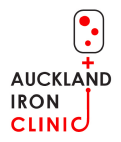Renal Patients
70% of patients with CKD are iron deficient
Refer if
• Ferritin <300 µg/L
• TSAT<30%
Cardiac Patients
50% of patients with CHF are iron deficient
Iron Deficiency in cardiac patients is associated with increased mortality and morbidity, reduced quality of life and reduced exercise capacity
IV Iron replacement results in improvement of fatigue score, kidney function, symptom status, QoL, decrease heart failure hospitalisations, increase in exercise capacity, with or without anaemia
Check Iron studies and FBC in all cardiac patients with HFrEF (EF<50%) or if symptomatic
Iron Deficiency in Patients with HFrEF is defined as:
• Ferritin <100 µg/L
OR
• TSAT <20% and Ferritin 100-299 µg/L
Inflammatory Bowel Disease
45% of patients with IBD are iron deficient
Refer if
Inactive IBD
• Ferritin <30 µg/L or TSAT <16%
Active IBD
• Ferritin <100µg/L or TSAT <16%
Pre-operatively
Intravenous iron is efficacious and safe and should be used in patients in whom surgery is planned in less than 4–6 weeks or in whom oral iron is not tolerated after the diagnosis of iron deficiency has been made.
Who to test?
Major orthopaedic procedures
Gynaecological or obstetric patients
Surgical procedures with expected moderate to high blood loss
• >500mls
Or
• >10% risk of needing a RBC transfusion
Refer if
Iron deficient
• Ferritin <30 µg/L
Inflammation/infection with CRP >5,
• Ferritin 30-100 µg/L
• TSAT<20%
Pregnant Women
NOT in the first trimester of pregnancy
Must be >16 weeks pregnant
Refer if
• Ferritin <15 – 30 µg/L
And/or
• TSAT <16 – 20%
Teenagers
Over the age of 14 years
